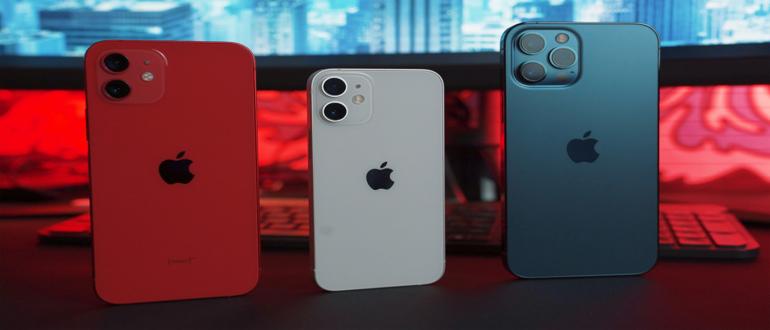
President Donald Trump is threatening Apple Inc. with a tariff of 25% if it doesn’t build iPhones in America.
“I have long ago informed Tim Cook of Apple that I expect their iPhone’s that will be sold in the United States of America will be manufactured and built in the United States, not India, or anyplace else,” Trump said Friday in a post on social-media platform Truth Social. “If that is not the case, a Tariff of at least 25% must be paid by Apple to the U.S.”
Trump’s latest tariff threat comes a week after his trip to the Middle East where he called out Cook, Apple’s CEO, and his company’s plan to make more iPhones in India to be sold in the United States.
Financial analysts have scoffed at the notion of imposing a steep tariff on Apple to force it to bring iPhone production to the U.S. Under such a scenario, domestic operations coping with tariffs, component shortages, and logistics inefficiencies “would result in an iPhone price point that is a non-starter for Cupertino (Apple’s corporate headquarters) and translate into iPhone prices of $3,500,” Wedbush Securities analyst Dan Ives said in a note to investors on Friday. “This would take 5-10 years to shift production to the U.S. We believe the concept of Apple producing iPhones in the U.S. is a fairy tale that is not feasible.”
Supply chain experts, meanwhile, assert shifting iPhone production to the U.S. this year would be foolhardy. The iPhone is 18 years old, and Apple executives predict people may not need an iPhone in a decade because it could be replaced by a new AI-geared device.
“It’s going to be very difficult to fully produce an iPhone in the U.S. in the short run,” Professor Stavros Gardinis, faculty director at Berkeley Center of Business and Law, said in an email. “That said, the administration does have some legitimate concerns around domestic semiconductor production, especially from a national security standpoint. So it’s not just about bringing manufacturing jobs back.”
Apple had been working to diversify its production capabilities the past few years, and already shifted some iPhone production to India, before Trump returned to office on a platform that included aggressive tariffs against China in particular. During Apple’s quarterly earnings call with investors this month, Cook — who is generally regarded as one of the best operations experts in the world — said he expected “the majority of iPhones sold in the U.S. will have India as their country of origin.”
Cook added that he anticipated Apple would face a tariff burden of up to $900 million this current quarter. (Trump did exempt electronics, such as smartphones and computers, from his tariffs on China last month.)
Still, in spite of the exemption and slashing his tariff to at least 30% on most Chinese goods, compared to 145% earlier this month, a 10% universal tariff remains on the majority of goods entering the U.S. And about 90% of iPhone production and assembly is based in China, according to Wedbush Securities. Some of Apple’s chips are made in the United States through a partnership with TSMC, which recently opened a chipmaking plant in Arizona.
Trump, who on Friday also vowed to recommend a 50% tariff on European Union goods starting June 1, has met with Cook at least twice in recent days to press his case for more domestic manufacturing of electronics.
“Regardless of how one feels about Trump’s use of tariffs as a geopolitical bargaining chip, it is a threat the EU cannot and should not ignore,” Dirk Auer, a legal scholar at International Center for Law & Economics, said in an email.
The administration’s latest tariff statements only add to trade uncertainty that has reached historic levels and roiled markets, says Pramata CEO Praful Sakalani.
“We haven’t even begun to see the impact of countermoves by trading partners and other alliances,” Sakalani said in an email. “This highlights how companies need to uplevel their game when it comes to understanding vendor risk and exposure to changing tariff and taxation policies. It’s our belief that every company needs to do a comprehensive review of buy-side and sell-side contracts to understand where they have exposure, to systematically determine their strategy for retaining profitability and growth in this environment.”
Added SCIP CEO Andy Kohm, “Even Apple, arguably the most sophisticated supply chain operator on the planet, is scrambling to navigate rising tariffs and shifting manufacturing. If it’s this hard for Apple, imagine the chaos facing mid-sized OEMs and manufacturers. What they need isn’t more spreadsheets — it’s a system that validates, augments, and activates their data in real-time. That’s where modern platforms like SCIP come in.
“Apple shifting production to India is just the tip of the iceberg. Even with their scale, resources, and supply chain prowess, they’re struggling to maintain cost and quality amid rising tariffs and shifting geopolitics. Mid-sized companies don’t stand a chance unless they adopt smarter technology — tools that consolidate, validate, and augment their supply chain data in real time. SCIP delivers the kind of supply chain intelligence companies need—especially those that can’t afford to throw money or manpower at every disruption.”

